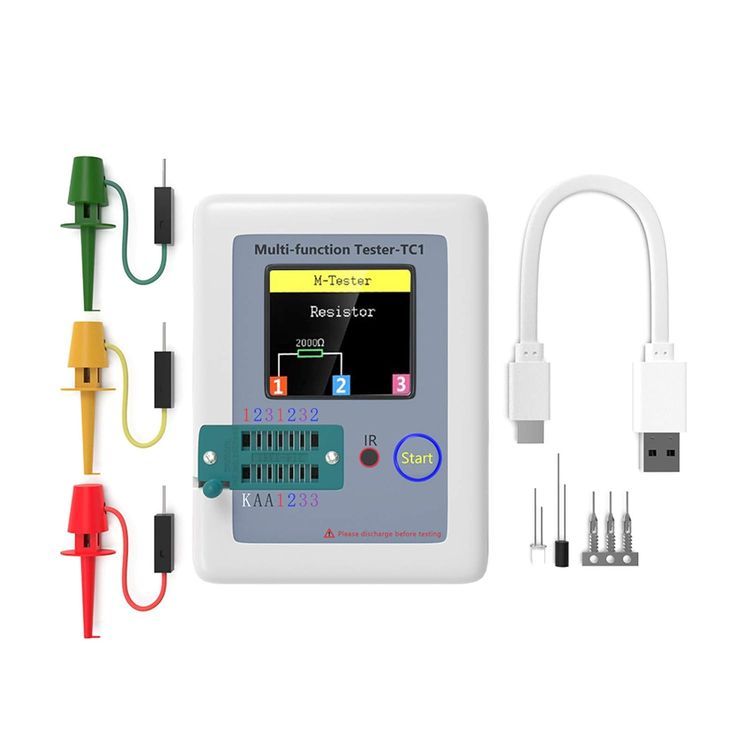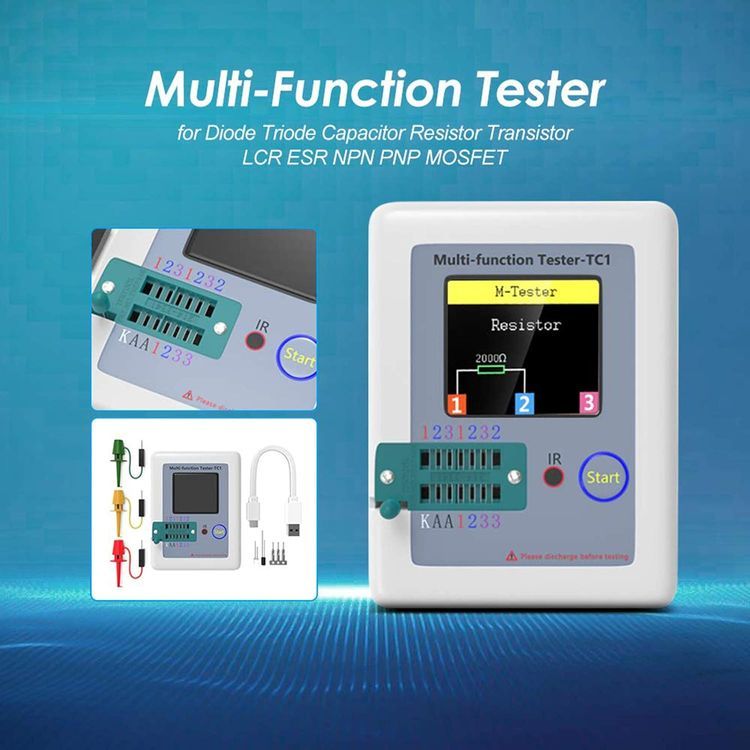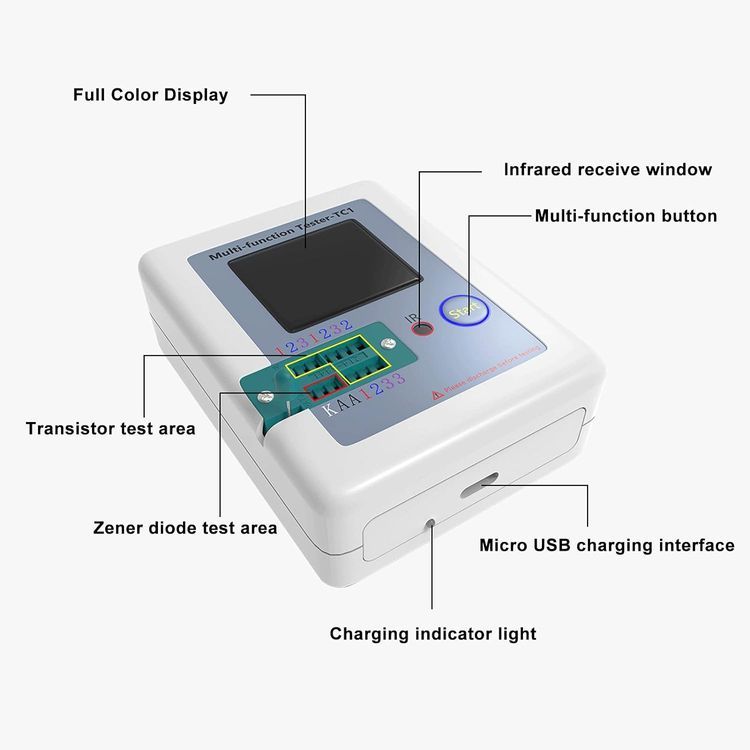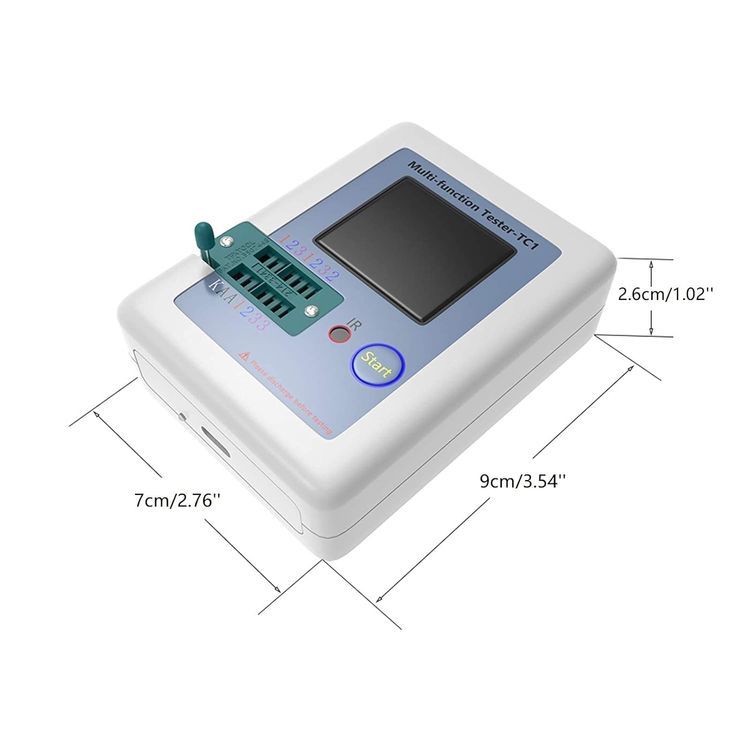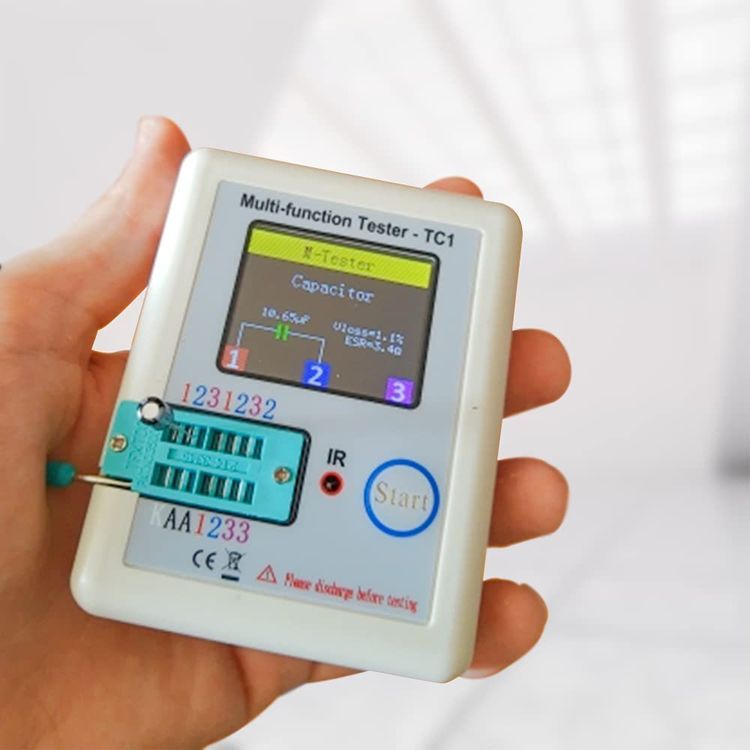Aideepen LCR-TC1 Capacitance & Resistance Meter Review
In this article, we will review the Aideepen LCR-TC1 capacitance and resistance meter and discuss key insights on its performance and usability. If you're searching for the best capacitance and resistance meters, be sure to check out our comprehensive list.
Check out the complete list: Best Capacitance & Resistance Meters.
* We research & recommend the best products based on our data analysis. If you purchase through our links, we may earn a commission. Learn more.
Aideepen LCR-TC1
An efficient and easy-to-use capacitance and resistance meter for electronic component testing.
The Aideepen LCR-TC1 capacitance and resistance meter is a versatile device designed for electronic component testing. Its wild application allows for the detection and identification of various electronic components including transistors, MOSFETs, diodes, thyristors, Mega328, BJT, resistors, and capacitors.
The meter features a 1.8" full color display that provides clear and easy-to-read test results. Its automatic detection feature enables the identification of NPN and PNP transistors, n-channel and p-channel MOSFETs, diodes, thyristors, and more. Additionally, it comes with an add-on IR decoder that can decode infrared signals.
The Aideepen LCR-TC1 meter is powered by a built-in lithium battery that ensures long-lasting power. The battery has an indicator light that shows green when fully charged. It is recommended to use a charging input voltage of 4.5V to avoid damaging the tester.
One notable feature of this meter is its auto shut-down function, which adds to its convenience and practicality. It automatically shuts down after a period of inactivity, preserving battery life.
Included with the meter are additional accessories that enhance usability and efficiency in completing projects. The user manual, available in the 'Product guides and documents' section, provides detailed instructions on using the meter and accessories.
Despite its advantages, the Aideepen LCR-TC1 meter may have some drawbacks. Users have reported that it may provide vague or inaccurate readings, requiring careful interpretation of test results. The probes are flimsy, but they can be easily fixed or replaced with sturdier alternatives. Additionally, it is important to discharge any components or circuits before testing to ensure accurate results.
In summary, the Aideepen LCR-TC1 capacitance and resistance meter offers a range of features and functionalities that make it easy to use for electronic component testing. Its compact and portable design, along with the built-in battery, adds to its convenience and usability. Despite some limitations, it provides good value for the price and is suitable for casual or hobby electronics tinkering, as well as more intricate projects.
Now, let's dive into our analysis and key insights on the Aideepen LCR-TC1 meter.
Our Analysis and Key Insights
In this section, we will discuss our analysis and key insights on the Aideepen LCR-TC1 capacitance and resistance meter. These insights provide a detailed examination of the meter's performance, usability, and value for money.
Efficiently identifies components
The Aideepen LCR-TC1 meter does a good job at identifying components, including transistors, MOSFETs, diodes, thyristors, Mega328, BJT, resistors, and capacitors. This feature makes it a valuable tool for electronic testing and troubleshooting.
Accuracy concerns with vague readings
While the Aideepen LCR-TC1 meter is generally reliable, it may provide vague or inaccurate readings in some instances. Users should exercise caution and rely on additional testing methods to ensure accurate results.
Importance of circuit discharge before testing
To obtain reliable and accurate results, it is important to discharge any components or circuits before testing with the Aideepen LCR-TC1 meter. Failure to do so may lead to inaccurate readings due to residual charge.
Ideal for casual or hobby use
The Aideepen LCR-TC1 meter is a suitable tool for casual or hobby electronics tinkering. It offers sufficient functionality and features for enthusiasts and DIYers to test and analyze electronic components in their projects.
Convenient for checking components in kits
The Aideepen LCR-TC1 meter is particularly useful for checking components in kits. Its efficient detection capability allows users to quickly verify the presence and functionality of various components included in electronic kits.
- Efficiently detects and identifies various electronic components
- Built-in lithium battery with long-lasting power
- Easy-to-read color screen
- Compact and portable design
- Great value for the price
- May provide vague or inaccurate readings
- Probes are flimsy
- Needs circuit discharge before testing
Frequently Asked Questions
What components can the Aideepen LCR-TC1 meter detect?
The Aideepen LCR-TC1 meter can detect and identify NPN and PNP transistors, MOSFETs, diodes, thyristors, Mega328, BJT, resistors, and capacitors.
Does the meter come with a user manual?
Yes, the user manual is available in the 'Product guides and documents' section.
Is the Aideepen LCR-TC1 meter battery-powered?
Yes, the meter is powered by a built-in lithium battery.
Can the meter decode infrared signals?
Yes, the meter has an IR test hole for infrared signal decoding.
Does the meter have an auto shut-down function?
Yes, the meter has an auto shut-down function for convenience.
Overall, the Aideepen LCR-TC1 capacitance and resistance meter is an efficient and reliable tool for electronic component testing. It offers a range of features such as component detection, color screen display, and a built-in battery, making it a great value for the price.
